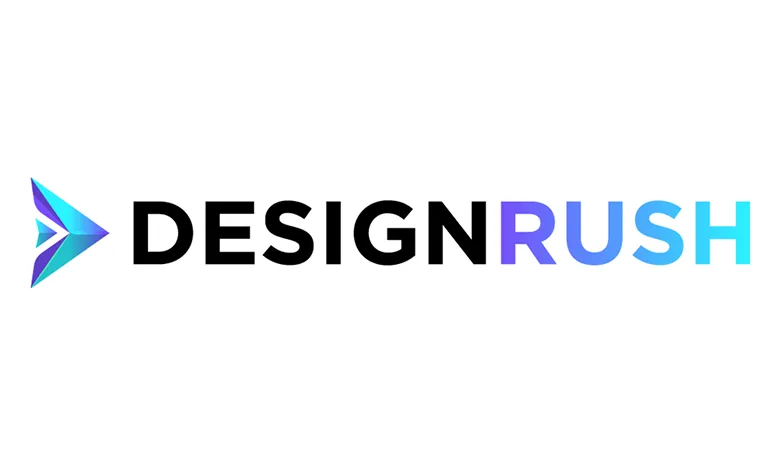Marketing That
Really Works!

Steps to Automate Your CRM with AI
Managing customer relationships efficiently is crucial for any business. As we step into 2024, using AI to automate your CRM can drastically improve how we interact with customers and manage data. Integrating AI into our CRM systems helps us streamline operations, enhance customer experiences, and save time on repetitive tasks.
AI-powered CRM automation offers several benefits. For example, AI can automatically analyze customer data, predict future trends, and provide insights that help us make informed decisions. This automation not only reduces manual work but also enables us to focus more on strategic activities that drive growth. Additionally, AI-driven chatbots can handle customer inquiries in real-time, ensuring prompt and accurate responses.
Understanding how to automate your CRM with AI involves several steps, from identifying key areas for automation to selecting the right AI tools. Each step plays a critical role in ensuring the successful implementation and optimization of your AI-driven CRM system. By following these steps, we can achieve a more efficient, effective, and user-friendly CRM that supports our overall business goals.
Identifying Key Areas for CRM Automation
Before diving into CRM automation with AI, it’s crucial to identify key areas where automation will have the most significant impact. One primary area to consider is data entry and management. Manual data entry can be time-consuming and error-prone. AI can automate this process by capturing and inputting data from various sources such as emails, social media, and phone calls. This automation ensures that our CRM system is always up-to-date, accurate, and comprehensive.
Customer service and support is another critical area for automation. AI-driven chatbots can handle routine inquiries and provide instant responses to common questions. This not only improves response times but also frees up our human agents to tackle more complex issues. By automating customer support, we can provide 24/7 service, enhancing customer satisfaction and loyalty.
Sales and marketing processes are highly beneficial when automated with AI. AI can analyze customer data to identify potential leads and predict which prospects are most likely to convert. Automated email marketing campaigns can be personalized based on user behaviour and preferences, making our outreach more effective. Additionally, AI can forecast sales trends and suggest strategies to optimize our marketing efforts, ensuring that we stay ahead of the competition.
Selecting the Right AI Tools for CRM
Choosing the right AI tools is essential for successful CRM automation. Start by evaluating the specific needs of your business and identifying which features will be most beneficial. For instance, look for tools that offer predictive analytics, as these can help forecast customer behaviour and sales trends. Software like Salesforce Einstein and HubSpot’s AI tools provide excellent predictive capabilities, allowing us to tailor our strategies to meet customer needs.
Another crucial feature to consider is natural language processing (NLP). NLP tools enable AI to understand and interpret human language, making them perfect for automating customer interactions. Tools like IBM Watson and Google's Dialogflow excel in NLP, offering capabilities for chatbots and virtual assistants that can handle customer queries efficiently and effectively.
Also, consider integration capabilities. The AI tools you choose should seamlessly integrate with your existing CRM system. Look for platforms that offer robust APIs and easy integration processes. For example, tools like Zapier can connect various applications, making it easier to automate workflows without needing extensive coding knowledge.
By selecting the right AI tools, you can leverage technology to improve your CRM system, making it more efficient and effective. This careful selection process ensures that the tools meet your needs and help you achieve your business goals.
Step-by-Step Guide to Implementing AI in CRM
Implementing AI in your CRM involves several key steps to ensure a smooth transition and effective integration. Here’s a clear, step-by-step guide to get you started:
1. Assess Your Current CRM System: Begin by evaluating your existing CRM setup. Identify bottlenecks, inefficiencies, and areas that can benefit from automation. This assessment will provide a clear picture of where to focus your AI efforts.
2. Set Clear Objectives: Define what you aim to achieve with AI integration. Whether it’s improving customer service, increasing sales, or streamlining data management, having clear objectives will guide your implementation process.
3. Choose the Right AI Tools: Based on your objectives, select the AI tools that best fit your needs. Ensure they offer the features required for your specific tasks, such as predictive analytics and natural language processing. Also, ensure they integrate well with your existing CRM.
4. Develop an Implementation Plan: Create a detailed plan outlining each step of the AI integration process. Include timelines, responsibilities, and key milestones. This plan will keep the project on track and ensure all team members are aligned.
5. Start with a Pilot Phase: Begin the implementation with a small, manageable pilot project. This allows you to test the AI tools in a controlled environment, identify potential issues, and make adjustments before a full-scale rollout.
6. Train Your Team: Ensure your team is well-equipped to work with the new AI tools. Provide training sessions and resources to help them understand how to leverage AI effectively.
7. Monitor and Evaluate: After implementing AI in your CRM, continuously monitor its performance. Evaluate its impact on your defined objectives and gather feedback from users. Use this information to make ongoing improvements.
Best Practices for Maintaining and Optimizing AI-Driven CRM
Maintaining and optimizing an AI-driven CRM requires ongoing attention and adaptation. Here are some best practices to keep your CRM running smoothly:
1. Regularly Update AI Models: AI models need to be regularly updated with new data to stay effective. Schedule routine updates to ensure your AI continues to provide accurate insights and predictions.
2. Monitor Performance Metrics: Keep an eye on key performance indicators (KPIs) to measure the effectiveness of your AI-driven CRM. Metrics such as customer satisfaction, response times, and sales conversions will help you understand how well the AI is performing.
3. Gather and Act on Feedback: Regularly collect feedback from your team and customers about their experience with the AI-driven CRM. Use this feedback to identify any areas for improvement and make necessary adjustments.
4. Ensure Data Quality: The accuracy of your AI insights depends on the quality of your data. Continuously clean and validate your data to maintain its integrity and reliability.
5. Stay Informed About AI Advancements: AI technology is constantly evolving. Stay updated with the latest advancements and trends in AI to ensure your CRM remains cutting-edge and competitive.
6. Foster a Culture of Continuous Improvement: Encourage your team to embrace a mindset of continual learning and improvement. Regularly review and refine your AI strategies to ensure you’re always maximizing the benefits of AI.
Conclusion
Automating your CRM with AI offers numerous advantages, from streamlining repetitive tasks to enhancing customer interactions. By carefully identifying key areas for automation and selecting the right AI tools, we can optimize our CRM systems for better efficiency and effectiveness. Following a step-by-step implementation plan and adhering to best practices for maintenance ensures that our AI-driven CRM continues to perform at its best.
AI integration in CRM isn't just a trend; it's a powerful tool that can transform how we manage customer relationships and drive business growth. Ready to revolutionize your CRM with AI? Contact Meshroad Marketing, a CRM company in Surrey, today to learn how our expertise in web design and CRM Automation with AI can take your business to the next level.








